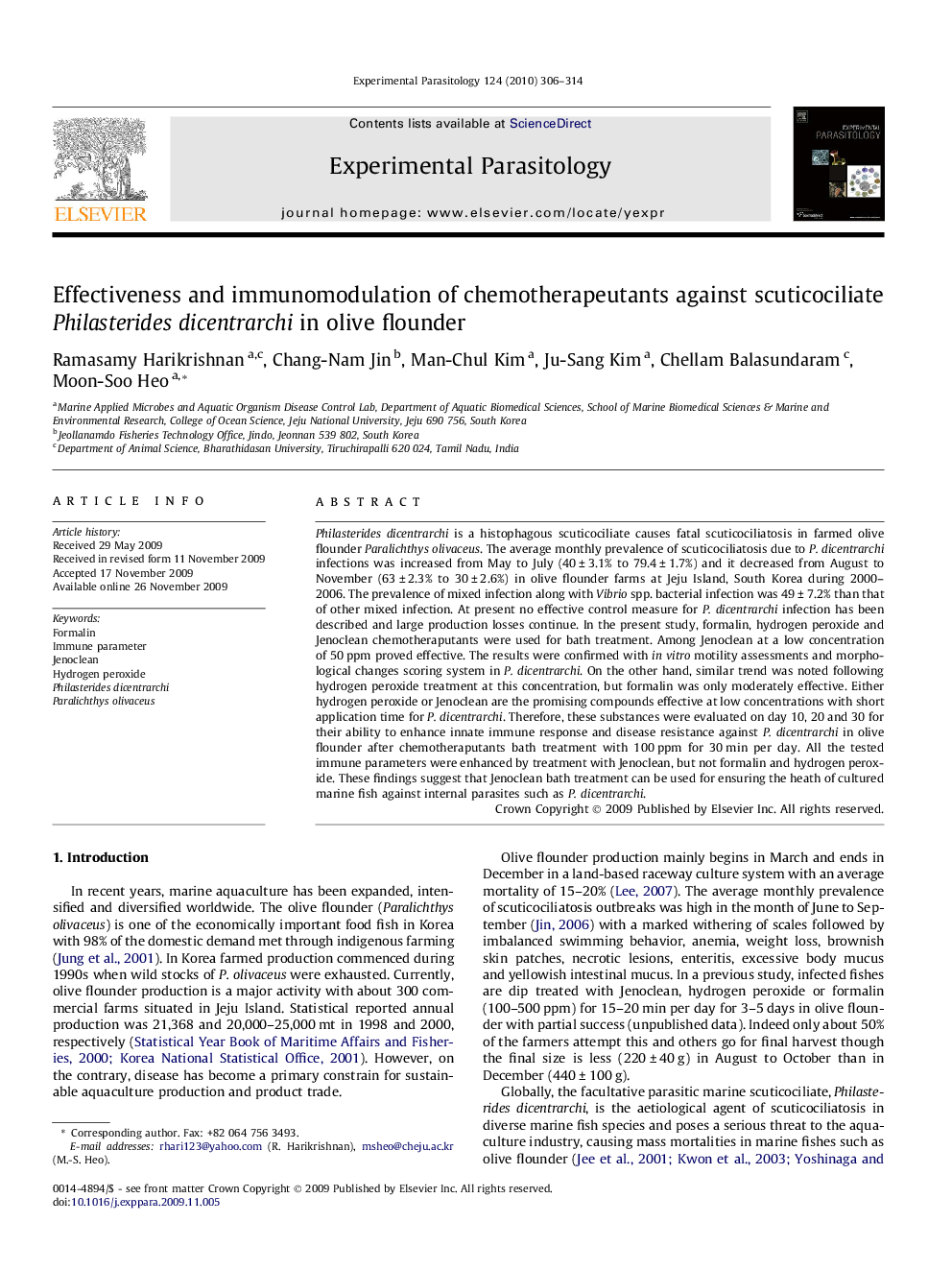| Article ID | Journal | Published Year | Pages | File Type |
|---|---|---|---|---|
| 4371639 | Experimental Parasitology | 2010 | 9 Pages |
Philasterides dicentrarchi is a histophagous scuticociliate causes fatal scuticociliatosis in farmed olive flounder Paralichthys olivaceus. The average monthly prevalence of scuticociliatosis due to P. dicentrarchi infections was increased from May to July (40 ± 3.1% to 79.4 ± 1.7%) and it decreased from August to November (63 ± 2.3% to 30 ± 2.6%) in olive flounder farms at Jeju Island, South Korea during 2000–2006. The prevalence of mixed infection along with Vibrio spp. bacterial infection was 49 ± 7.2% than that of other mixed infection. At present no effective control measure for P. dicentrarchi infection has been described and large production losses continue. In the present study, formalin, hydrogen peroxide and Jenoclean chemotheraputants were used for bath treatment. Among Jenoclean at a low concentration of 50 ppm proved effective. The results were confirmed with in vitro motility assessments and morphological changes scoring system in P. dicentrarchi. On the other hand, similar trend was noted following hydrogen peroxide treatment at this concentration, but formalin was only moderately effective. Either hydrogen peroxide or Jenoclean are the promising compounds effective at low concentrations with short application time for P. dicentrarchi. Therefore, these substances were evaluated on day 10, 20 and 30 for their ability to enhance innate immune response and disease resistance against P. dicentrarchi in olive flounder after chemotheraputants bath treatment with 100 ppm for 30 min per day. All the tested immune parameters were enhanced by treatment with Jenoclean, but not formalin and hydrogen peroxide. These findings suggest that Jenoclean bath treatment can be used for ensuring the heath of cultured marine fish against internal parasites such as P. dicentrarchi.
